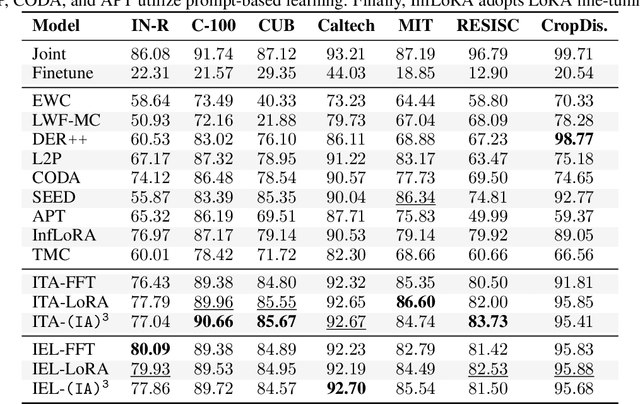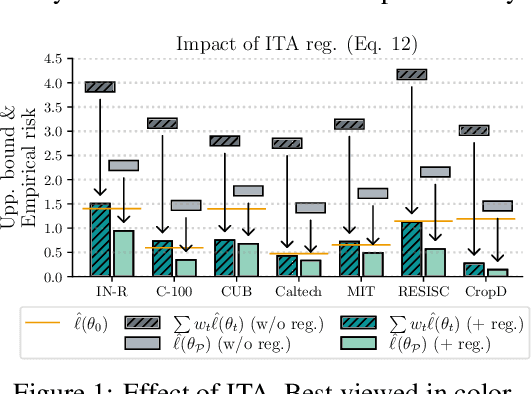Monica Millunzi
May the Forgetting Be with You: Alternate Replay for Learning with Noisy Labels
Aug 26, 2024Abstract:Forgetting presents a significant challenge during incremental training, making it particularly demanding for contemporary AI systems to assimilate new knowledge in streaming data environments. To address this issue, most approaches in Continual Learning (CL) rely on the replay of a restricted buffer of past data. However, the presence of noise in real-world scenarios, where human annotation is constrained by time limitations or where data is automatically gathered from the web, frequently renders these strategies vulnerable. In this study, we address the problem of CL under Noisy Labels (CLN) by introducing Alternate Experience Replay (AER), which takes advantage of forgetting to maintain a clear distinction between clean, complex, and noisy samples in the memory buffer. The idea is that complex or mislabeled examples, which hardly fit the previously learned data distribution, are most likely to be forgotten. To grasp the benefits of such a separation, we equip AER with Asymmetric Balanced Sampling (ABS): a new sample selection strategy that prioritizes purity on the current task while retaining relevant samples from the past. Through extensive computational comparisons, we demonstrate the effectiveness of our approach in terms of both accuracy and purity of the obtained buffer, resulting in a remarkable average gain of 4.71% points in accuracy with respect to existing loss-based purification strategies. Code is available at https://github.com/aimagelab/mammoth.
A Second-Order perspective on Compositionality and Incremental Learning
May 25, 2024



Abstract:The fine-tuning of deep pre-trained models has recently revealed compositional properties. This enables the arbitrary composition of multiple specialized modules into a single, multi-task model. However, identifying the conditions that promote compositionality remains an open issue, with recent efforts concentrating mainly on linearized networks. We conduct a theoretical study that attempts to demystify compositionality in standard non-linear networks through the second-order Taylor approximation of the loss function. The proposed formulation highlights the importance of staying within the pre-training basin for achieving composable modules. Moreover, it provides the basis for two dual incremental training algorithms: the one from the perspective of multiple models trained individually, while the other aims to optimize the composed model as a whole. We probe their application in incremental classification tasks and highlight some valuable skills. In fact, the pool of incrementally learned modules not only supports the creation of an effective multi-task model but also enables unlearning and specialization in specific tasks.
 Add to Chrome
Add to Chrome Add to Firefox
Add to Firefox Add to Edge
Add to Edge